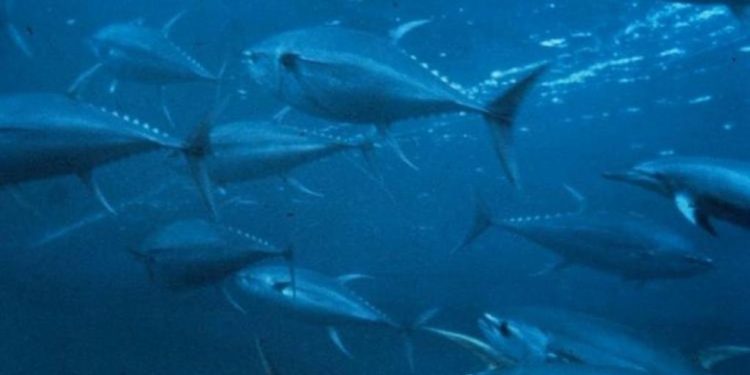In a strongly-worded warning ahead of the Western and Central Pacific Fisheries Commission (WCPFC) upcoming WCPFC Science-Manager Dialogue (SMD) meeting, due to take place this month, the Global Tuna Alliance has issued a reminder that a significant group of companies are determined to keep tuna stocks in the ‘green zone.’
‘We appreciate that the major tuna stocks in the Western and Central Pacific Ocean are currently ‘in the green1’ – with no overfished stocks or overfishing occurring,’ said Dr Tom Pickerell, Executive Director of the Global Tuna Alliance.
‘But to ensure this continues, we are calling on the Western and Central Pacific Fisheries Commission (WCPFC) to accelerate action to develop comprehensive management procedures (harvest strategies) across these stocks.’
The GTA states that the upcoming WCPFC Science-Manager Dialogue Meeting provides delegates with an opportunity to confirm the details or ‘settings’ of the proposed skipjack and albacore management procedures, and is a crucial step.
Tom Pickerell added that these stocks may be ‘green’ currently, but the voice of the market is calling for future-proofing to weather the inevitable storms ahead.
A collaboration of 49 independent retailers, suppliers, wholesalers, and brands active in the seafood sector and with a major interest in improving the sustainability of the tuna sector, the GTA members form one of the world’s largest networks of seafood wholesalers and suppliers to the consumer, particularly of tuna, purchasing 1.63 million tonnes worth US $2.35 billion in 2021 alone – accounting for roughly 30% of global production.
There are thirty tuna fisheries in the West and Central Pacific Ocean region that are either MSC certified or in full assessment, representing over two million tonnes of certified and potentially certified WCPFC tuna within the supply chain each year. This equates to three-quarters of the global production of MSC-certified tuna.
According to the GTA, these certifications are at high risk of suspension if the WCPFC is unable to complete its workplans related to management procedures and harvest control rules by December 2022.
‘The MSC has published a factsheet that outlines this situation. These fisheries are not too big to fail. In 2019 and 2020 the mackerel, herring and blue whiting fisheries in the NE Atlantic (over two million tonnes) lost their MSC certifications for similar reasons,’ Tom Pickerell said.
‘As our Partners are engaged in the sourcing of tuna globally, they are concerned that if the SMD fails to make significant progress, then MSC certified tuna fisheries in the West and Central Pacific Ocean could face difficulty meeting their conditions and certifiers may suspend them in June 2023. But the bigger picture is that if these fisheries are not managed properly there is a risk that the current good status of these tuna stocks will be lost.’









